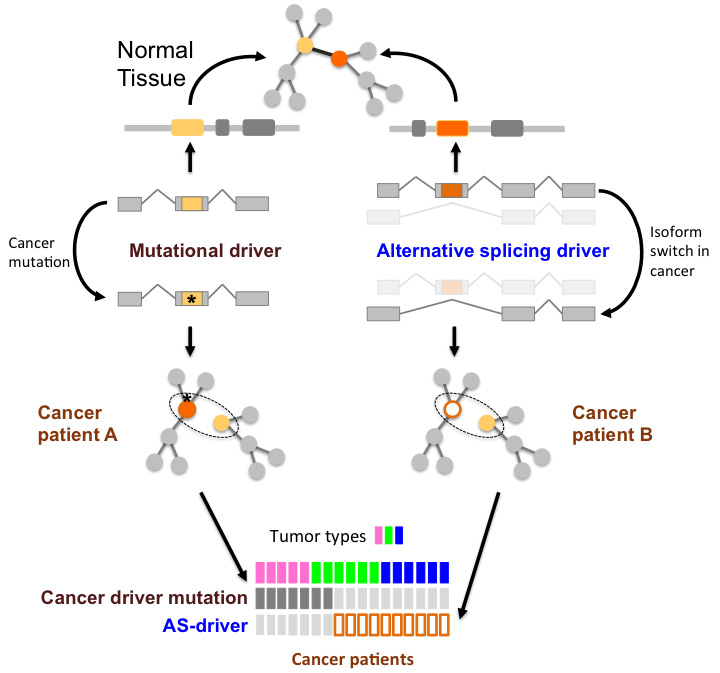The alternative processing of genomic loci through alternative splicing (AS) to produce multiple transcripts is a prevalent mode of gene expression regulation in multicellular organisms. It is related to essential biological processes and it has been long recognized that disruption of splicing mechanisms can cause disease, including cancer. Cancer arises from genetic and epigenetic alterations that interfere with essential mechanisms of the normal life cycle of cells, such as replication control, DNA repair and cell death. Multiple cancer-related alterations have been described to induce AS changes in tumor transcriptomes, which in turn impact their function and contribute to the pathological properties of tumors. The prevalence of AS in cancer genomes suggests that these alterations may be related to significant functional impacts and may explain some of the observed oncogenic properties. With the aim to address this question, we performed an exhaustive analysis of the functional impacts produced by AS changes in tumors. We described how cancer specific AS changes lead to shorter protein products. As a consequence, transcript isoforms expressed in tumors encode for fewer functional domains, i.e. there is a potential loss of the functional capacities of genes. Protein domains more frequently affected by AS belong to functional families classically affected by somatic mutations in tumors. Additionally, these functional losses are strongly associated to protein-protein interactions and affect partners of classical cancer drivers. Moreover, we observed that protein affecting mutations and splicing changes tend to occur in different patients, suggesting an equivalence between the mutations and splicing changes. Splicing alterations may thus recapitulate similar functional impacts to those observed through genetic alterations, namely protein affecting mutations and copy number alterations, more commonly associated with cancer. Transcriptome data thus shows that alternative splicing has a functional impact similar to other alterations, and may also play a driving role in cancer progression.
Reference
